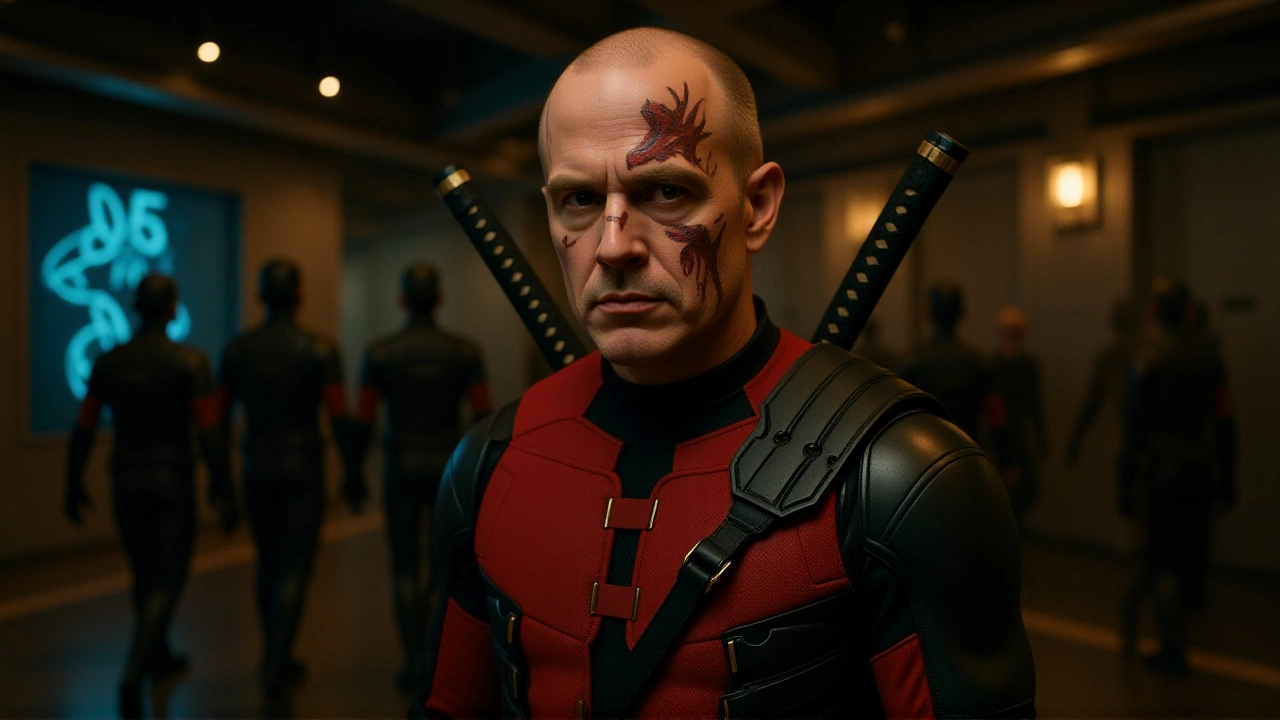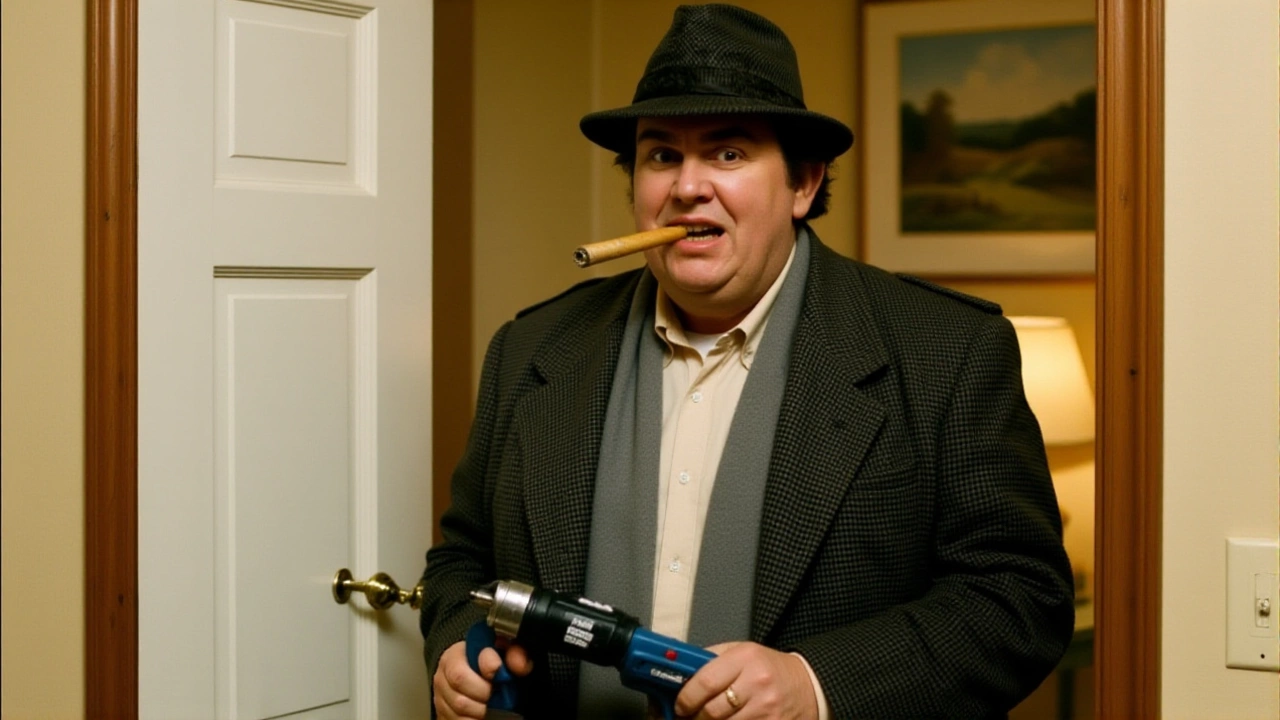Thirty-one years after his sudden death at 43, John Franklin Candy is back—not as a caricature, not as a punchline, but as a deeply human man wrestling with grief, guilt, and the crushing weight of being loved by millions while feeling unseen at home. The documentary John Candy: I Like Me, directed by Colin Hanks and produced by Ryan Reynolds, premiered on Prime Video on October 8, 2025, offering an intimate, unflinching look at the man behind the laughter. This isn’t just a tribute. It’s a reckoning.
The Ghost of a Five-Year-Old Boy
The documentary doesn’t begin with John Candy on set or laughing on SCTV. It begins with silence. The moment his father, Sidney Candy, collapsed from a heart attack at age 35 in Newmarket, Ontario—just days before John’s sixth birthday. That day didn’t just break a child’s heart. It rewired his understanding of life. "He never believed he’d live past 35," recalls Eugene Levy, Candy’s longtime collaborator. "And when Belushi died? John looked like he’d seen his own obituary." The fear wasn’t abstract. It was genetic. It was inherited. By the time Candy was filming Wagons East in Durango, Mexico, in March 1994, he’d already outlived his father by nine years. But he never felt like he’d earned the extra time.The Weight of Being Loved
At his heaviest, Candy tipped the scales at over 300 pounds. Hollywood didn’t punish him for it—he was *paid* to be bigger. "They told him to gain weight," says his widow, Rosemary Candy. "They said, ‘That’s your brand.’" He ate to soothe, drank to quiet, smoked to calm. Dave Thomas, his SCTV partner, remembers: "I remember John going through doctors like cigarettes. One would say, ‘Lose the weight.’ He’d nod. Then he’d go get another doctor who’d say, ‘You’re fine.’" His comedy wasn’t just performance—it was armor. "He was a people-pleaser to the bone," says author Paul Myers, whose companion biography John Candy: A Life in Comedy was released on October 12, 2025. "He didn’t have a filter. He had a mission: make everyone feel safe. Even if it cost him sleep. Even if it cost him health."
The Countdown to March 4
The film’s most chilling device isn’t a talking head or a tearful home video—it’s the timer. A digital clock, ticking backward from 1994 to 1987, to 1982, to 1975. Each year marks a milestone: the release of Planes, Trains and Automobiles, the death of John Belushi, the loss of his father. The timer doesn’t just track time—it tracks inevitability. "It’s not a countdown to fame," says Hanks. "It’s a countdown to a man who never believed he deserved to stick around." In one raw moment, Candy’s daughter, Jennifer Candy-Sullivan, watches footage of her father as Del Griffith, the lovable, loud-mouthed travel salesman from Planes, Trains and Automobiles. He says: "I like me. My wife likes me. My customers like me. Because I’m the real article—what you see is what you get." She wipes her eyes. "That was his prayer," she says. "Not just a line. A promise."A Legacy of Quiet Kindness
The film doesn’t shy from Candy’s flaws. His battles with addiction. His avoidance of therapy. His reluctance to speak about his father’s death. But it also reveals something rarer: a man who showed up—for his kids, for his co-stars, for strangers who asked for photos. "He never said no," says Chris Candy, his son and co-executive producer. "Even when he was exhausted. Even when he was sick. He’d smile, sign the autograph, and say, ‘You’re welcome.’" That’s why the film resonates now. In an era of curated personas and influencer theatrics, Candy’s authenticity feels radical. "He didn’t need to be the best," says Levy. "He just needed to be the one who made you feel like you mattered." His children, Jennifer Candy-Sullivan and Chris Candy, say the project was never about nostalgia. "It’s about the silence," Chris explains. "We spent decades wondering if we were supposed to keep his memory alive—or if we were just supposed to move on. This is how we answer that."
What Happens When the Laughter Stops
The final scene shows Candy’s funeral. No celebrity eulogies. Just family. Friends. A few fans who’d traveled from across Canada. One woman says, "I didn’t know him, but I felt like I did. He made me feel like I wasn’t alone." That’s the legacy. Not the box office numbers. Not the iconic scenes. But the quiet way he made people feel seen.Frequently Asked Questions
Why was John Candy’s childhood trauma so central to the documentary?
The documentary reveals that John Candy’s father died of a heart attack when John was five, just days before his birthday—an event that instilled a lifelong fear of dying young. This trauma shaped his behavior, relationships, and health choices, with his family and collaborators confirming he believed he wouldn’t live past 35. The film uses this as the emotional core to explain his people-pleasing nature and self-destructive habits.
How did Hollywood contribute to John Candy’s health struggles?
Rather than pushing him to lose weight, Hollywood executives encouraged Candy to gain weight, believing his larger physique was key to his comedic appeal. His widow confirmed studio pressure to "pack on the pounds" for roles, even as doctors warned him of heart risks. This contradiction—being celebrated for his body while being medically endangered by it—deepened his internal conflict and reliance on food and alcohol.
What role did the timer in the documentary play?
The digital countdown, ticking backward from 1994 to earlier years, serves as a haunting visual metaphor for Candy’s awareness of his mortality. Each year marked a turning point: Belushi’s death, his father’s passing, the peak of his career. The timer isn’t just chronological—it’s psychological, showing how Candy lived under the shadow of an early death he felt destined to meet.
Why is the phrase ‘I like me’ so significant to the documentary’s title?
The line, spoken by Candy’s character Del Griffith in Planes, Trains and Automobiles, was his personal mantra. While he struggled with self-worth, he projected confidence outward, using humor and kindness to mask deep insecurity. His daughter says the phrase wasn’t just a joke—it was his way of affirming his own existence in a world that rarely made him feel worthy of it.
How did John Candy’s Canadian identity influence his personality?
Candy’s Canadian upbringing shaped his humility and aversion to conflict. His family and colleagues describe him as polite, self-deprecating, and reluctant to assert his needs—even when exhausted or unwell. This cultural tendency to prioritize harmony over self-care, combined with his trauma, made him more vulnerable to burnout and emotional suppression, traits the documentary frames as both admirable and tragic.
What’s the connection between the documentary and Paul Myers’ biography?
Released four days after the documentary’s debut, Paul Myers’ biography John Candy: A Life in Comedy provides deeper context on Candy’s early career, family history, and psychological profile. While the film uses emotion and imagery to convey his inner world, the book offers archival details, interviews with lesser-known associates, and a chronological narrative that complements the documentary’s thematic approach.
